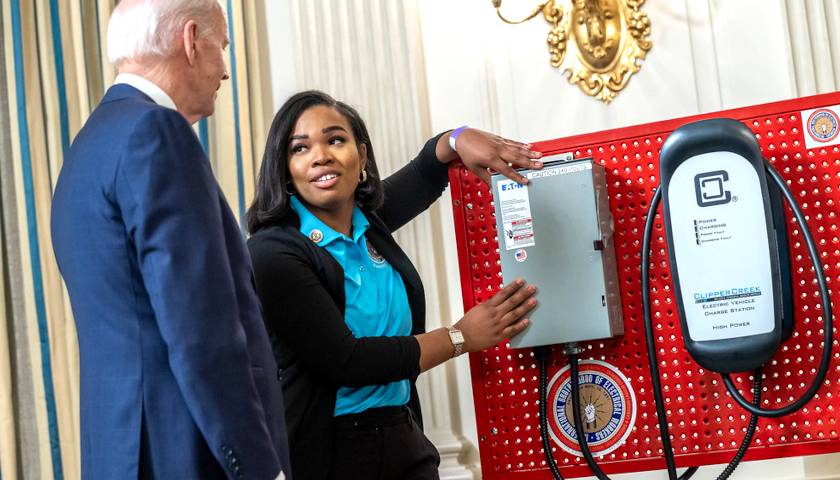Though the Biden administration’s emissions standards – often referred to as an electric vehicle mandate – don’t kick into 2032, the policy is already running into problems with charging station availability, declining consumer interest and automakers losing billions of dollars on their EV sales.
Read MoreTag: National Center for Energy Analytics
U.S. Oil, Gas Hit Record Production Despite Opposition from OPEC, Activists, and Biden Administration
The United States is producing more oil now than any nation in the world has ever produced. In 2008, the U.S. produced only 5 million barrels of oil a day. Last year, the country produced 13 million barrels daily.
The United States’ record-breaking production is often used to knock back the argument President Joe Biden’s energy policy aims to minimize domestic fuel fuel production – to cut carbon emission and make way for more renewable energy.
Read MoreBiden’s Ambitious EV Charging ‘Fantasy’ May Be on a Collision Course with Reality
President Joe Biden has pledged to install 500,000 public electric vehicle (EV) chargers around the U.S. by 2030, but logistical hurdles may be too much to overcome.
The Biden administration landed $7.5 billion to build out a network of public EV charging stations around the country in the bipartisan infrastructure package of 2021, but those funds have only led to a handful of operational charging stations to date. Transportation Secretary Pete Buttigieg reaffirmed the administration’s goal to build 500,000 chargers with the money by 2030 during a May television appearance on CBS News, but challenges like adding transmission lines, navigating the permitting process and coordinating with utility companies figure to make the goal improbable.
Read MorePublic Schools Push ‘Climate Crisis’ Narrative, as Skeptics Try to Offer Other Perspectives
Paul Tice, senior fellow for the National Center for Energy Analytics, took the opinion pages of the Wall Street Journal to criticize the climate change curriculum in New Jersey public schools.
The educational materials, Tice explained, are not just found in sections of science courses, but in all school subjects. Districts are encouraged to insert lessons on climate change into English language arts and mathematics. In foreign language classes, students discuss the impacts of climate change “on the target language of the world.”
Read More



